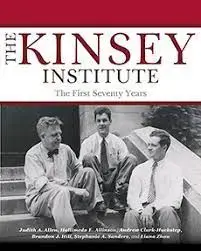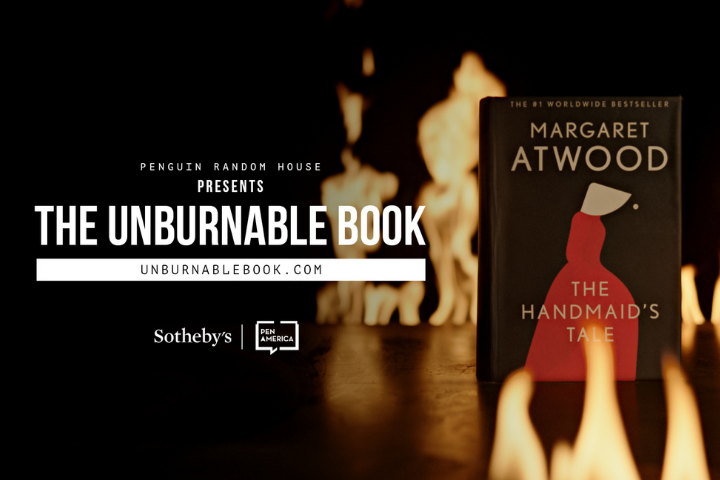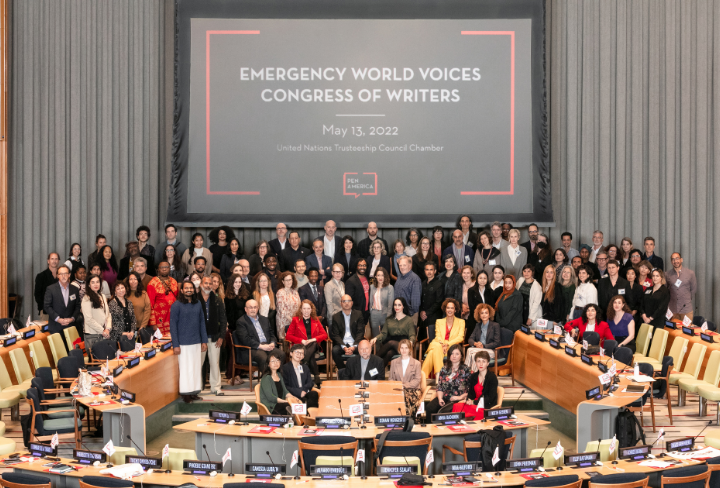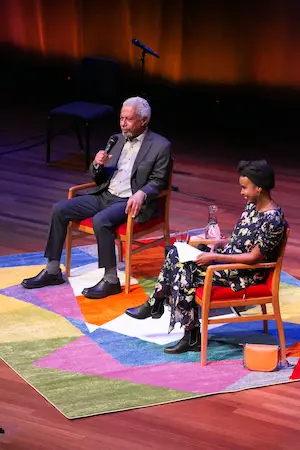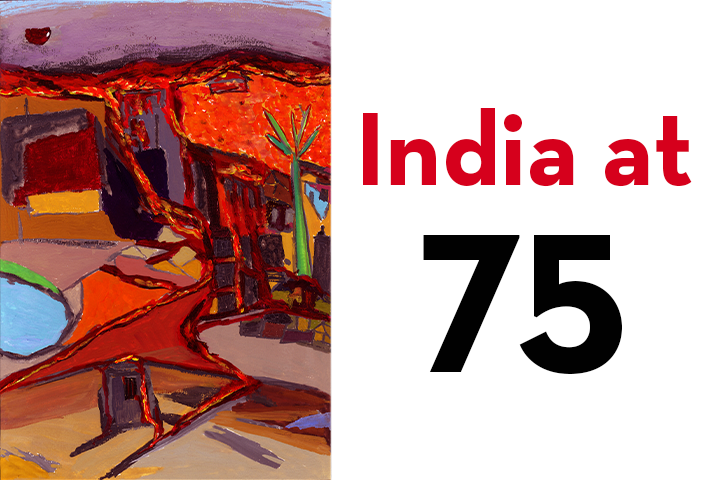
Contributors A – G: Aakar Patel • Aanchal Malhotra • Aatish Taseer • Abraham Verghese • Akhil Katyal • Akshaya Mukul • Altaf Tyrewala • Amandeep Sandhu • Amit Chaudhuri • Amitava Kumar • Angela Saini • Anirudh Kanisetti • Anita Desai • Anuradha Bhagwati • Arjun Sethi • Arshia Sattar • Arvind Krishna Mehrotra • Ashish Kothari • Ashok Vajpeyi • Chitra Banerjee Divakaruni • Damodar Mauzo • Daribha Lyndem • David Davidar • Deepa Mehta • Dev Benegal • Devyani Saltzman • Gaiutra Bahadur • Ganesh Devy • Geetanjali Shree • Ghazala Wahab • Gyan Prakash
Aakar Patel
India is adrift today. It is detached from the moorings it had been secured to in 1950. The pluralist and progressive vision of those who led it into independence has been discredited and all but vanished. It has been replaced by a confident majoritarianism which expresses itself against other Indians, and finds pleasure and delight in the trauma it inflicts internally. It is instinctive and that is why it has been difficult to resist. This cold wind has brought us into unfamiliar and dangerous waters. We will get out eventually, of course: all humanity will. But India must first finish its adventure fully. This is the most important moment in our history and this is our pivotal generation.
Aakar is Chair of Amnesty International India. His work The Anarchist Cookbook: A toolkit to protest and peaceful resistance is being published in September by HarperCollins.
Aanchal Malhotra
“My father used to say to us—Hindustan is our vatan, our land. It didn’t matter that we were Musalmaan; what mattered was that we were born here and here is where we would die . . . Our Hindu brothers are born in Hindustan, they grow up here, live their lives here, they die here. And when they die, they are cremated and their ashes are immersed into holy waters of the river Ganga. Within her tides they flow, even if it is eventually into foreign waters. But look at us Musalmaans—we are born in Hindustan, we grow up here, we live here and we die here. And when we die, we are buried deep into the ground [and] we become one with the land. We become Hindustan . . . We become Hindustan, our bodies mix into its soil. How could we ever leave this land, then? Our home, our life—how could we ever leave it? We are within the very land.”
—Excerpt from a conversation with a Partition witness, Delhi, 2014.
Aanchal Malhotra is an oral historian from New Delhi, India. She is the author of two books, Remnants of a Separation, published internationally as Remnants of Partition, archiving the objects carried by refugees across the newly made border in 1947, and In the Language of Remembering, on the long-lasting, intergenerational, cross-border legacy of Partition.
Aatish Taseer
India turns seventy-five, but I am not invited to the party. India is a Hindu country and in the eyes of those I grew up amongst I am merely a Muslim now—denatured by a place that is itself denatured. Since the ‘mountaineer’ on Raisina Hill—‘ten thick worms his fingers, his words like measures of weight’—decreed me a Pakistani, I have not been able to go back home. I don’t mind. The best of us are exiles now, some external, some internal, and I (at least) am spared the pain of returning to a place that has ceased to exist.
“I do not love Germany,” wrote Sebastian Haffner, taking leave of a country he no longer recognized, “just as I do not ‘love’ myself.” Love is too small a word for what one feels for one’s country. True belonging is to hold one’s place to a standard, as one would hold oneself. India has slipped. The primal cry for a limpieza de sangrehas taken the country by the throat. We know from the fear in the faces of those propagating this dark new vision of an impure purity that it will not last. We carry away a strand of DNA from that old India and bide our time—ready for when that glamorous big-hearted country is ready to return to herself.
Aatish Taseer is a British-American writer in New York. He is the author, most recently, of The Twice-Born: Life and Death on the Ganges.
Abraham Verghese
I was born in Africa, the son of Indian Christian parents from Kerala. When I settled in Madras for college, I had just fled a country where a military dictatorship had trampled over human rights. So I could only marvel at the unwieldy miracle of Indian national elections, the vibrant free press, and the freedom of all religious groups to worship. I never took what India had accomplished for granted. How sad and alarming then to see these very things under threat today; we must not stay silent.
Abraham Verghese, author of three books, the most recent of which is Cutting for Stone. He was born in Ethiopia and lives in California. He is a physician and writer who teaches at the Stanford Medical School. In 2016, he received the National Humanities Medal from President Obama.
Akhil Katyal
The Bystander
pours wax
into his own ears
sprays pepper
into his own eyes.
He stuffs his nostrils
with marigolds
clogs his mouth
with sand.
One by one, he dams up
all his senses.
He claims innocence.
The night of massacre climbs.
Akhil Katyal was born in Bareilly and lives in Delhi. He is a poet, translator and scholar. He has published three volumes of poetry, one anthology, and translated a volume of verse. He writes in Hindi, Urdu and English.
Akshaya Mukul
Each passing moment I feel like the chronicler of Zbigniew Herbert’s Report from a Besieged City. The only difference is my country is besieged. I have no right on my food, dress, belief system, and sexuality. Dissent has been banished and the bravest have been packed into jails where an inmate with Parkinsons had to fight for straw and sipper. Another inmate is denied P.G. Wodehouse. Paranoia rules us, bulldozers dominate the streets, courts are on a long vacation, and universities no longer question. Cheering masses—unemployed and angry—blame the minorities for their tattered lives since the leader can do no wrong. Every morning newspapers are full of tales and an example is made of those who verify facts. As the nation dies out, our middle class has taken the coward’s route, justifying the state of the nation and its descent into abyss. ‘It is a chaos before our ascent to the summit of nations’ they tell you.
Is everything lost? Not yet. Maybe never. Defenders of rights and the Constitution, small in numbers, will outlive those full of violence, hate and fury. And even if one defender is left, she will stand at the gate.
Akshaya Mukul is a journalist and writer in Delhi. He is the author of two works of non-fiction, including the award-winning Gita Press and the Making of Hindu India. His biography of Agyeya was published recently..
Altaf Tyrewala
I NEEDED A GOD TODAY
I needed to confess
That I was back to needing
A father in heaven
Back to needing
Being afraid of sin
Of hellfire and demons
And a belief in the invisible
I needed a god today
But he’s closed for business
The prayer house is padlocked
The priests have disappeared
A sign on the door says
Seek Me in your heart’s shrine
You mean that shrine I razed?
That altar I burned?
That sanctuary I demolished?
That pedestal I smashed?
What resides in those ruins
Is belief’s ghost
And the echo of a prayer
To never need a god again
I needed a god today
I needed to tell him
That heart’s shrine
Is now a mausoleum
To disbelief and to living
Altaf Tyrewala is the author of three fiction books and has edited a crime fiction anthology. His works have been published around the world and he was awarded the DAAD Artist-in-Berlin literature grant. He has also curated a literature festival. He hails from Mumbai and now lives in Dallas.
Amandeep Sandhu
Births are bloody. At the dawn of India and Pakistan’s birth as nations in 1947, the Urdu-language poet Faiz Ahmed Faiz said: “ye daag daag ujala, ye sab-gazida seher, wo intezaar tha jiska, ye wo seher to nahin”—”This stained tainted light, this night bitten dawn, that we were waiting for, this is not that dawn.” While the Indian mainland celebrated the nation’s birth, the poet looked at the birth pangs, the bleeding, the result of extreme identity politics, the laceration of Panjab and Bengal due to Partition. About 1 million people died, and 15 million were displaced in the largest, inadequately documented, migration in the history of the world. At birth India was a poor, populous nation. Over the decades, India progressed on various development indices but its mass was so large, its complexity so dense, that it also bumbled along the way. Discontent grew in society. In the last decade, the wounds of identity politics festered when India’s majority mostly abnegated their secular ethos in favor of a right-wing dispensation that has used every sectarian trope, even institutions of state, to attack the minorities and erode democracy. Those who support the powers in this new India now seemingly find direction, but it is a downward spiral on all indices and its economy. Faiz’s dawn has turned to noon, and I tremble, stating: now another darkness beckons.
Amandeep Sandhu is the author of Panjab: Journeys Through Fault Lines and a Homi Bhabha Fellow 2022-24. He lives in Bangalore.
Amit Chaudhuri
An excerpt and a translation — Amit Chaudhuri
1. The Deer and the Ewe (short excerpt from an essay published in Social Research)
What does religion use reason against? Post-Enlightenment convention, which we have internalized, states that religion’s enemy is, in fact, science and reason, and vice versa. A more careful examination reveals that rationality, in India, is religious thought’s means of refuting hegemony, and hegemony, until 300 years ago, in India as elsewhere, was religion (though the narrative of Christianity and its wars with the state and science have to be distinguished from the argumentation I’m referring to). So religion uses reason to refute religion, or, more precisely, bogus religion—from which (in case we need reminding) xenophobia mainly emanates. Here, in Arvind Krishna Mehrotra’s translation, is an example from the fifteenth-century Bhakti poet Kabir, the son of Muslim weavers, deploying logic against the habit of equating religiosity with signs of religiosity:
If going naked
Brought liberation,
The deer of the forest
Would attain it first.
If a shaven head
Was a sign of piety,
Ewes would be
Pious too.
If holding back the semen
Brought you closer to heaven,
A steer would
Lead the way.
The song ends:
There’s no salvation
Without Rama, says Kabir.
Not to know it
Is really dumb. (Kabir 2011, 23)
Some premises are being examined here and being tested against another premise at the end. The propositions in question have to do with whether the markers of renunciation, asceticism, and piety (an unclothed body, a shaven head, holding in semen) are a guarantee of spiritual attainment. If they were, “Ewes would be / Pious too.” The benchmark is not the observance of a form of practice, but direct experience: “no salvation / Without Rama.” “Rama,” here, is proof (pramana); the accessories presented as evidence of spirituality are accouterments that are easily acquired—in the case of the deer and the ewe, acquired without any effort at all.
Hum dekhenge by Faiz Ahmed Faiz
Translated by Amit Chaudhuri
We shall see—
It’s certain we too shall see
The day that was promised to us
And set indelibly in iron
When the boulder-weight of tyranny
Will scatter like wisps of cotton
And under the feet of the reigned-over
The earth will pound like a heart beating
And over the heads of those who govern
Lightning will burn and crackle
When all idols will be vacated
From the holy places
And we, the dispossessed and displaced,
Will be returned to our inheritance,
Each crown will be flung away,
Each seat of power brought down
Allah’s name will remain: nothing more—
He, who is present and absent too,
He, who is both scene and spectator;
The cry “I am truth” will be heard,
The cry that is me as it is you,
And everywhere will reign God’s progeny
Which is what I am, as you are.
Amit Chaudhuri is a singer, musician, and the author of eight novels, including Sojourn, published in August 2022, besides one collection of short stories, three books of poems, and five volumes of non-fiction. He lives in Calcutta.
Amitava Kumar
On February 23, 2020, riots erupted in Delhi. The homes and shops owned by Muslims in northeast Delhi went up in flames after a ruling party politician, irked by those protesting discriminatory citizenship laws, whipped fanatical fury among his followers. There is a story that I wrote down in my notebook from one of the news-reports I had read: ‘A Muslim resident of Shiv Vihar kept pet pigeons. The mob burned down his home and then killed the pigeons by wringing their necks.’ Were they Muslim pigeons? There is another brief, heartbreaking detail that I recorded in my notebook: ‘A man returned to a street corner to sift with his hands through a pile of black and gray ash searching for his brother’s bones. He had seen his brother on fire as he tried to flee the mob. He found charred bits that he was going to bury in a cemetery when peace returned.’
I believe we should remember what was done by our fellow human beings. We ought to fight for justice on behalf of those so grievously wronged. What is the central conceit of art? That someone reading you will be moved, that your work will leave someone altered or changed. I cannot say I have bought into that worldview completely. But I do want to remember, and my words or art to keep alive a memory. Many lovers of Urdu poetry remember Bashir Badr’s lines: ‘Log toot jaate hain ek ghar banane mein / Tum taras nahin khaate bastiyan jalaane mein.’ (People go broke in building a home / And you remain unmoved as you burn down whole neighborhoods.) The poet was speaking from experience. His own home in Meerut was gutted and reduced to rubble in the Hindu-Muslim riots in 1987. Like Bashir Badr, I am saying that I remember, I remember.

Amitava Kumar is a writer and journalist. He is the author of several works of fiction and non-fiction, and, most recently, a book of drawings. Kumar was born in Ara, Bihar, and teaches at Vassar College in the United States.
Angela Saini
My father rarely speaks about the past. Just the occasional anecdote, dropped like a bomb and never mentioned again.
He recalls his parents in Punjab urging their Muslim neighbors not to leave during Partition. Entering one empty home after it was all over, some villagers found a kitchen knife. My father pauses to consider how quickly the Muslim family must have packed up and ran to have left behind an object that they were too poor to lose.
What happened to that knife afterwards, I wonder. Did those who used it remember the friendships that once existed between neighbors?
Or was having the knife more important?
Angela Saini is a British writer born to Indian parents. She lives in New York. She writes on science and is the author of three works of non-fiction, most recently Superior: The Return of Race Science. Her next book is on the origins of patriarchy.
Anirudh Kanisetti
We choose what history means, and what we learn from it. Today, the past has been appropriated to only make us yearn for imagined, bygone splendor, to provoke shame or anger. But India’s history is something grander.
For thousands of years, people like us lived in a harsher world, where power ran untrammeled. Yet, somehow, 75 years ago, our ancestors said “no more.” And they tried, at least, to correct the injustices of the past, with an ambition and optimism unparalleled in human history.
It may seem, in 2022, that all this is irrevocably in jeopardy; that we are doomed, inevitably, to return to the horrors of our iniquitous past. But the lessons of history are not so bleak. They cannot be allowed to be. The progress that our ancestors fought so hard for will not be forgotten so easily. Through the dark and difficult years ahead, there will always be some who speak truth to power. There will be those who fight for what is right. And I hope that they will look back to 2022, and hear voices like theirs, and know that they will never be alone in what they stand for—just as we are not.
Anirudh Kanisetti is a researcher, historian, and columnist who writes and hosts podcasts on South Asia’s past and present. He is the author of a book about the medieval history of Southern India.
Anita Desai
Our Old Delhi garden was once a pleasant place to sleep on summer nights, but the summer I was ten years old was different: we could see the smoke and flames of fires burning in the Old City; our parents and neighbors awake and watchful. When school reopened, the classrooms were half empty, so many students had “crossed the borders,” we were told. Refugee camps teemed everywhere.
Yet out of that nightmare, the flag of an independent India was raised, a new constitution written that was fair and free of the sectarianism that had caused the agitation and its violence, a testament to the survival of the people’s hopes and idealism. Briefly, we held our heads high.
Seventy five years on, what do we see? All the riches of the many cultures we had inherited coldly and deliberately destroyed, so many vibrant and valuable voices silenced, even the natural world of forests, rivers and wildlife desecrated, leaving us with the dust and ashes of hate and falsehoods.
Anita Desai is the author of 18 works of fiction including In Custody and Clear Light of Day. She is a professor emerita at MIT, a Fellow of the Royal Society of Literature and the American Academy of Arts and Letters. Among her honors are a Padma Bhushan.
Anuradha Bhagwati
Istiqlal
Where are you from? he asks. We are both in bathing suits in the local pool, breathing hard, cellulite and body scars bare. He is as British and pale as I am Brown and assimilated.
New York City, I say, defiantly. He looks at me without speaking, assessing the rights and wrongs of his next question. I spare him the struggle. I just want to swim another lap.
India, I add, each detail revealing more to confuse him, my family is from Gujarat. Where Gandhi was from. Where Modi is from.
Oh, he replies. And we both know my explanation on origins is not enough, because he is scrutinizing my right upper arm, where Arabic wraps itself around bicep and tricep.
But then why the tattoo? he continues.
It’s a long story, I say, prepared. Too long for a break at the wall of the pool. Dad is a secular Hindu. Mom is a convert to Christianity. I am a student of Buddhism.
Istiqlal, I explain. It means “independence.” It’s a word I adopted from Palestine, and I apply it to all of today’s moments: the struggle for Black lives in Trump’s America, for Dalit and Muslim dignity in Modi’s India. It will never get old.
On the next break between intervals, he says suddenly, I hope I didn’t offend you.
No, I respond, smiling extra hard. I push off the wall, and swim.
Anuradha Bhagwati (she/her) is the author of Unbecoming: A Memoir of Disobedience. A former Marine Corps captain and award-winning activist, she founded the Service Women’s Action Network, which brought national attention to sexual violence in the U.S. military and helped repeal the ban on women in combat. She lives in San Francisco with her service dog, Duke.
Arjun Sethi
India was at the center of the global struggle for decolonization and liberation not long ago. Its legacy was the power of collective action, nonviolent resistance, and the promise of a democracy, albeit an imperfect one, rooted in inclusivity and pluralism.
An authoritarian regime inspired by Hindutva nationalism has extinguished that flame. The BJP and RSS wage war on the press, erase minority rights, blockade Kashmir from the world, and employ a propaganda and disinformation machine unrivaled today.
India often escapes global scrutiny because of its vivacious culture, massive economy, and geopolitical alliances. In the interim, those who paved the way for modern India mourn in the ethereal and those who dare speak out risk arrest, death, or languish in dark cells hoping the world remembers their names.
Only the most dystopian could have imagined that there would come a day when India would bear closer resemblance to the colonial power it dethroned than the democratic republic it aspired to be.
Arjun Singh Sethi was born in Virginia and teaches law at Georgetown University Law Center. He is the author of a book about racism & hate in America.
Arshia Sattar
When you live in a nightmare, when you wake each day with a sense of dread, you recall things that gave you hope, you imagine things as they could be, you look for reasons to engage with your increasingly horrifying reality. I often return, at those times, to a past that promised a world of peace and love and harmony, of equality and freedom for everyone. Joni Mitchell comes to mind, telling me that we are better than what we are living through, that we have been sold for blood money, that we must bring ourselves back to the beauty, the compassion and the solidarity that we are all capable of.
We are stardust, we are golden
We are part of the devil’s bargain
And we’ve got to get ourselves
Back to the garden.
Joni Mitchell, ‘Woodstock,’ 1969
Arshia Sattar is a writer in Bangalore. She translates from Sanskrit. Her work includes translations of the Ramayana, and three critical studies.
Arvind Krishna Mehrotra
Laugh Club of Gandhi Park
In lanes too narrow
for three to walk abreast,
that only peddlers
with goods to sell
from upright bicycles enter,
are modest houses,
modest only in name,
behind whose barred windows,
ornamental gates,
the spikes along the top
painted black and gold,
live family men who can
wiggle their fiery
bellies at will.
You see them
in Gandhi Park,
on opposite benches,
practicing their skills,
a smokescreen
of laughter
hiding their faces.
They move in a pack
and eat sprouts
on the way out.
Mistimed
badminton shots
exploding around him,
a metal soldier
with assault rifle
stands guard
and a musical fountain
plays fountain music
in the background.
Arvind Krishna Mehrotra was born in Lahore in 1947 and lives in Dehradun. He is the author, most recently, of Collected Poems (Shearsman Books) and Ghalib, A Diary: Delhi 1857-58 (New Walk Editions).
Ashish Kothari
India@75: Behaving like an Elder?
As India celebrates 75 years of Independence, does it embody the wisdom such an age should bring? At least from one point of view, the answer is a resounding NO—the sustainability of its natural environment, on which all our lives depend.
It is astounding how we still ‘externalize’ nature in our single-minded pursuit of economic growth. After decades of high growth, 480 million people in northern India face the most extreme levels of air pollution in the world. According to the NITI Aayog, “600 million people1Study by H.M. Mathur in India: Social Development Report 2008. in India face high to extreme water stress … with nearly 70% of water being contaminated.” The Indian Space Research Organisation says that 30% of our land is at various stages of degradation, some getting desertified. In the markets of most cities, food has levels of pesticides well above human safety levels. The climate crisis is threatening the livelihoods and lives of several hundred million—mostly the poorest. Yet, the government is busy dismantling environmental and social security policies to favor corporate access to land and natural resources. 60 million people have already been displaced by ‘development’ projects; how many more?
It does not have to be like this. Thousands of initiatives are demonstrating how basic needs including food, water, energy, housing can be met, dignified livelihoods generated, and learning and health access enhanced, while working with and within the natural environment, respecting not only human rights but also the rights of fellow species to thrive (www.vikalpsangam.org). But this requires spaces for everyone’s voice in decision-making (a radical democracy), community control over the commons, struggles against various inequalities including gender and caste, sustaining diverse cultures and knowledges, and replacing GDP with meaningful indicators of well-being … a genuine swaraj. In the last quarter of its century of Independence, this is India’s biggest challenge. If we fail, we will be mourning, not celebrating, in 2047.
Ashish Kothari is with Kalpavriksh, an environmental organization in India. He has taught at Indian Institute of Public Administration, served on boards of Greenpeace International & India, is a judge on International Tribunal on Rights of Nature, and helps coordinate Vikalp Sangam and the Global Tapestry of Alternatives. He is co-author/co-editor of Churning the Earth, Alternative Futures, and Pluriverse: A Post-Development Dictionary.
Ashok Vajpeyi
Freedom as reality is forever in jeopardy. But as we complete the 75th year of freedom as a nation, freedom is ironically suffering a huge deficit and assault in India today. Intellectually, creatively, and imaginatively we were free before political freedom came to us. Literature, the arts, and science of pre-independent India were created by free-minded writers, artists, and scientists. After independence we enjoyed, by and large, freedom to express our dissent, our criticism of the establishment, our vision of alternatives. This freedom today is being seriously and grievously curtailed by both legal and extra-legal ways. Unfortunately, not only freedom, but also equality and justice, the founding values of our constitution, are under assault.
Today to be a writer in India, in its many languages, is to be a victim of surveillance by many ideological watchdogs whose feelings are hurt at the slightest deviation from the given social-religious norms. A genuine artist or writer today has to be a person of courage, conscience and creativity. She has to struggle against forces of amnesia, hatred, violence, and bulldozing, lie-spreading technologies. Truth is in minority, courage and imagination, conscience and solidarity, are in minority. Speaking truth is unpardonable blasphemy. And yet literature and the arts survive with dignity, invincible courage and moral resistance. Politics, power, economy, and the media may not listen and care, but truth is being spoken and protected by writers and artists. Freedom finds residence in creativity, even if it is shrinking in reality.
Ashok Vajpeyi is a poet and critic. He writes in Hindi and lives in Delhi.
Chitra Banerjee Divakaruni
Stories
I grew up on heroic tales of women
Sarojini Naidu Matangini Hazra
Who underwent torture to buy us freedom
willingly and sometimes with their lives. Travel backwards
with me to Hazrat Mahal Rani Laxmibai, back, back
to Draupadi Arundhati Radha the ever-misunderstood Sita
With her quiet epic resistance. The chiaroscuro
silhouettes of my lifetime too
Indira Mahasweta Ismat and should I include Kiran?
Time blurs closeup, hard to tell protagonist from antagonist.
#MeToo and #NoMoreCompromise
butt heads against memories of Nirbhaya.
But today I think of the nameless ones
who broke the love-laws who stepped out at night
sometimes their homes were their most dangerous place
whose stories wash up if at all
like bodies far downstream bloated and unrecognizable.
Beloved India I hold close this 75th birthday
With joy and trepidation and precious hope of change.
Droupadi I am waiting to see what you will do.
Chitra Banerjee Divakaruni is the Betty and Gene McDavid Professor of Writing at the University of Houston. She is the author of thirteen works of fiction, including, most recently, The Last Queen and the award-winning collection Arranged Marriage, five books for young adults, four collections of poetry, and has edited three anthologies.
Damodar Mauzo
Translated from Konkani by Riya Kirtani
Sprout
While reading a book, I came across a thought. Quite a profound one. That nudging thing would not let me sleep. No matter how hard I tried, it didn’t give up, so I simply decided to sleep with it.
When I woke up in the morning, I found that the thought had sprouted, so I rushed with it to my front yard, in order to plant it. However, I knew that the soil in my own yard was not quite productive while my neighbor’s land was very fertile. Besides, he liked gardening. So, I crossed over the fence and carefully planted the tiny sprout there. Even before it rained, the little sprout drew nutrients and bloomed to become a plant. Soon it was a tree that bore flowers and fruits. The neighbor was delighted.
I was then surprised to learn that the fruits had therapeutic value that provided an instant cure for many ailments. People flocked at the neighbor’s door asking him to give them some. The generous neighbor never sent away anyone empty handed. Whenever he was at private get-togethers or at public meetings, the neighbor tended to share his fruits with the people.
News started popping up about this healing fruit. The stories were afloat, day in and day out. Someone who could not see well had a clear and effective vision.
A confused soul claimed to have gained a new-found understanding.
Someone who had been faltering to see the path clearly, now got the foresight to visualize what was coming.
A person whose intelligence had gathered dust found the wheels turning again.
Even someone with severe brain fever was cured.
What surprised me the most was when I saw Mr. X, a person known for his crooked ways, was now most well-natured, as good as Mr. A1. Even the abusive Mr. Y and Mr. Z, who always mouthed profanities, were unrecognizable with their newfound persona of piousness.
Before long, the fruit had become popular on Facebook, number of its followers increasing with every passing day.
Nevertheless, all good things always face an alternate viewpoint. The disapproving frowns gradually started rising.
Someone had severe stomach ache from just the smell of the fruit.
Some were hit by indigestion.
Some others’ migraines had worsened.
Some started throwing up at the smell of the fruit.
While some were hit by insomnia.
When things became worrisome, the affected people held a meeting and decided to give my neighbor a piece of their mind.
“Do not go around distributing those fruits, do not even let people take them away,” they said. When the angry men found the neighbor not paying any heed to their plea, they saw to it that the fruits were legally banned.
They spread rumors that the seed was smuggled from the enemy country, giving people a reason to troll the neighbor for it.
“Such anti-national activities ill not be tolerated by our Bharat-Premi Sena,” the patriots vowed.
The perpetrators then realized to their chagrin that the neighbor was named Bharat! So they decided to look for a new name for their outfit.
One day, I overheard of their conspiracy to teach my neighbor a lesson. When I called on him and cautioned him about it, he simply laughed.
Soon afterwards, in the dread of a dark night, I heard frightful sounds in my neighborhood. I felt a chill in my spine when I could sense truckloads of people gathered there. I plugged my ears and tried to sleep. I envisaged my neighbor put to sleep for good. In no time, I could sense the sparks flying, hear the embers ticking and feel the heat on my skin. Did they set the house on fire?
It was a lot later in the wee hours that the spell subsided.
Yet, I could not get myself to fall asleep. The thought I had found in the book kept nagging me.
The next day, gauging the situation, I solemnly made my way over to my neighbor’s house. He was in a murky mood. It was not his house but the tree that was in ashes.
“They should have just killed me instead. Why the innocent tree? They incinerated it along with its flowers, fruits, roots….” He said. I wiped his tears and quietly walked away without even a fleeting look at the burnt tree.
As I reached home, I suddenly had an inkling of doubt. I examined it closely. And look—
The thought that was nagging me at night, had grown a sprout.
Damodar Mauzo lives in Goa and writes in Konkani. Essentially a short fiction writer he has several books to his credit. He is the recipient of the highest literary award of India, the Jnanpith 2022.
Daribha Lyndem
News
The couple read the news together every morning, the few in their high rise building that still get the papers. They flipped the first few pages to get past the advertisements—they knew they had reached the actual news when they could read that everything was well. Outside their tinted windows, down in the streets, they could see a commotion. A crowd on the road, smoke and banners. But there was nothing in the news, so they did not bother.
Daribha Lyndem is a writer from Shillong. She is currently working and living in Mumbai. Name Place Animal Thing is her debut novel which was recently shortlisted for the JCB Prize for Literature. She was named one of the promising writers of 2021 and beyond by digital magazine Feminism in India and in a list of ‘Best Summer Reads of 2020’ by Vogue India, and has reviews in The Hindu, The Caravan, Firstpost among others.
David Davidar
The Murmurous Dead: A Very Brief Exchange with a Spirit
Not so long ago, after a fall, I was laid up in bed. As a result of bruised ribs, and stitches in my jaw, sleep was often elusive. One restless night, in the pre-dawn hours, just as gray began filtering through the kachnar trees outside my bedroom window, I had an unexpected visitor. My visitor had neither form nor substance but was simply a consciousness outside my own—its voice was nevertheless clear and unmistakable.
“Sir”, my visitor began, respectfully, “I have a question for you.”
“Who are you?” I asked.
The voice belonged to the spirit of a fourteen-year-old girl who had died in a communal riot in a small town a few years ago.
“And what is this question you have for me?” I asked.
“Why?” she asked, “Are there no memorials for us? Rightfully, there are memorials to the brave men and women who gave their lives protecting our country, their sacrifice should never be forgotten, but how come there are no memorials for us, all of us innocents whom the country failed to protect?”
Nonplussed, I did not reply immediately and she spoke up again.
“There are hundreds of thousands of us who have paid with our lives in this glorious nation of ours because of the acts of commission or omission of our leaders, the least we deserve are memorials so we will be remembered.”
“But surely,” I said weakly, “There must be plaques or memorial stones…”
She interrupted me. “Private markers by our families and those who mourn us don’t count. We died because the state did not look out for us, so it’s the state which should erect memorials for us.”
She had piqued my interest, so I said, “And what form should these memorials take.”
She said, “The form doesn’t really matter, though I would love it if my memorial were to be a garden or even just a flowering tree in a prominent place in the town where I was killed, an amaltas or a gulmohar or a jacaranda, just imagine if all us were honored thus our ugly cities and towns would be transformed into paradisiacal places of shimmering green and yellow and red and violet.”
I was momentarily lost in the vision she had conjured up, until she spoke again. “No matter what form each memorial takes, every single one of them has to have an essential component.”
“And what is that?” I asked.
“Each of them must have a plaque listing the names of the leaders who failed us, those who were responsible for our deaths. Our leaders love to put their faces on all sorts of billboards and posters that are prominently displayed in public places, so their portraits should be engraved on these plaques for all eternity. That way the part they played in our deaths will never be forgotten.”
And with that she was gone, as abruptly as she had appeared, just as the morning light came flooding into the room.
David Davidar is a publisher, editor, novelist, and anthologist. His books include the best-selling novel, The House of Blue Mangoes, and an anthology of classic Indian short fiction, A Clutch of Indian Masterpieces.
Deepa Mehta
Dear PEN,
I am in India from Toronto every four months or so. Ma has accelerating dementia and it’s important to be there with her and my brother, her primary caregiver. To hang on to the memory of the mother I knew, Ma who sang Begum Akhtar’s thumris, recited Faiz Ahmad Faiz’s poetry at the drop of a hat, and insisted I take Higher Hindi in boarding school in order to read Premchand’s stories effortlessly. Gurmukhi, courtesy her, became my second language—all this while my classmates opted for what I considered exotic—French, German, and Spanish. Ma, who reminisced about a huge bonfire in her Delhi neighborhood in 1945. Led by ‘Mamaji’ the flames were fed with everything Brit he could lay his hands upon. And Ma, though a devout Gandhian, refused to part with her favorite hard copy of Charles Dickens’s Great Expectations. Moral of the story? I guess we can’t always do what we know we should do.
I am blabbing on—trying to create a picture of my bright, hopeful, all-embracing mother and through her, of my country. Mother and Motherland both disappearing before my eyes. Helpless as I watch Ma’s inevitable decline, and equally helpless as I watch India, in its own trajectory. where the basic pursuit of freedom of expression feels like an elusive privileged dream.
I wonder, if I were not a NRI could I have a more active role in the necessary protests? Probably. And conversely does being a part of the Indian diaspora give me the right to protest the transformation of the country of my birth? I guess so. ‘Birth’ being the operative word here. The umbilical cord is difficult to sever.
Sitting as I do in Toronto, known pretty much as a controversial Indo-Canadian filmmaker, all I fear is of being denied an Indian visa (to be accurate, this has not ever transpired. The current Consul General is a Satyajit Ray fan) But IF that denial ever comes into fruition (the visa stamp on my Canadian passport that is) it would mean I could not fly to Delhi and be with my mother. It’s an alarming thought.
Please consider me a mere foot soldier who is terrified of not seeing Ma again.
Deepa Mehta is an Indo-Canadian filmmaker. Her work includes Earth, Water, Fire, Heaven on Earth, Midnight’s Children, Anatomy of Violence, Netflix’s Leila, and Funny Boy.
Dev Benegal
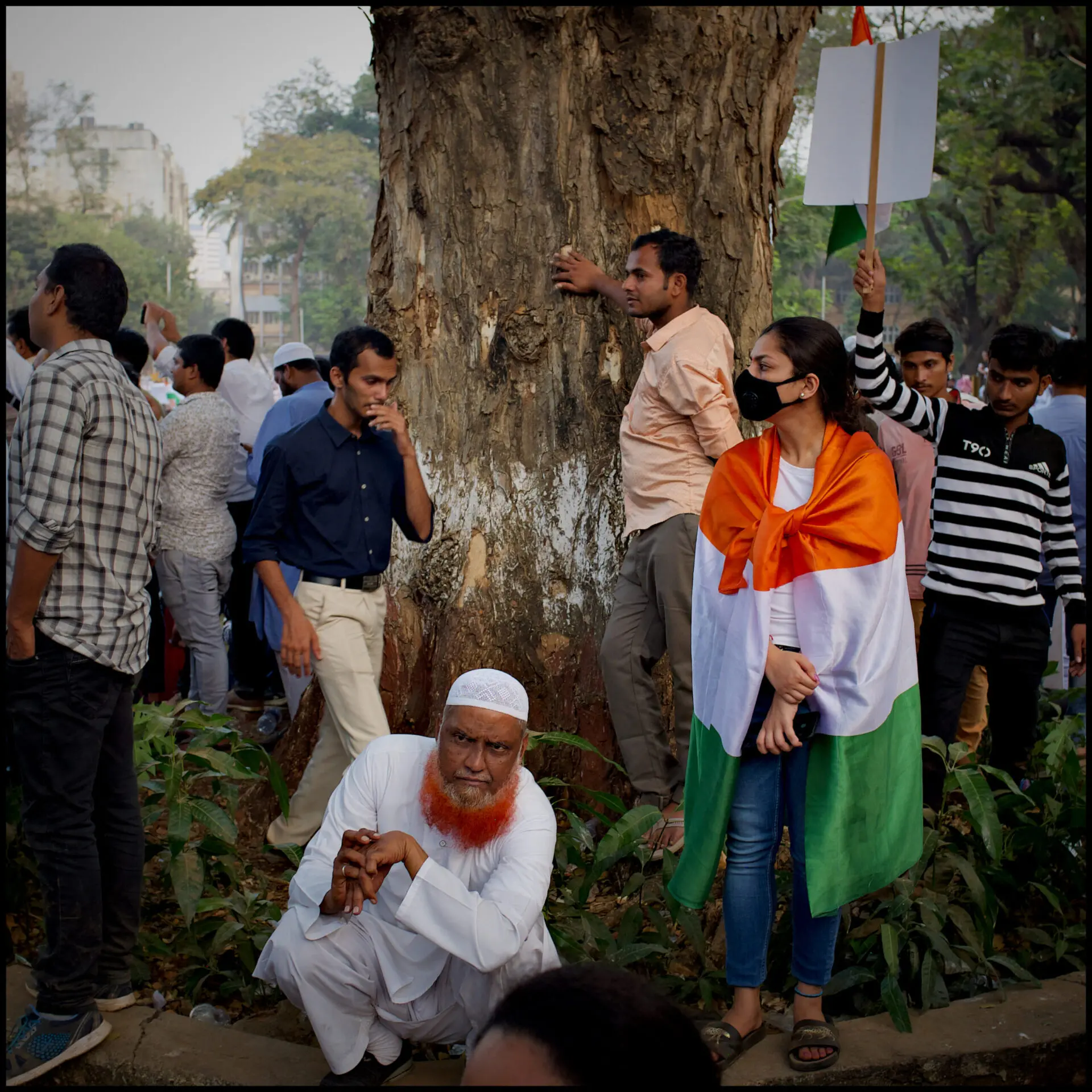
“I want to live forever.
What else can I say.
It rains as I write this. Mad heart, be brave.”
Agha Shahid Ali
Dev Benegal is a film director and screenwriter of the award winning films, English, August, Split Wide Open, and Road, Movie. English, August won India’s highest award in cinema, was selected at MOMA’s New Directors New Films and was the first Indian acquisition of 20th Century Fox. He teaches screenwriting and is a longtime advisor to the eQuinoxe Europe screenwriting workshop.
Devyani Saltzman
On the eve of August 15th, the seventy-fifth anniversary of Indian independence, I’m remembering sitting in my Nani’s Maruti as a child and watching the Delhi traffic go by, and later hearing her stories of the nascent republic, the freedom movement, and how she and her sisters rejected cotton for khadi to build what would be, at least in the early dreams of its first post-colonial leaders, the world’s largest socialist democracy. Now, as of November, sitting in the same roundabouts watching the saffron decals of a new India, one rewriting the narrative of secularism in favor of populism and Hindu nationalism, erasing its pluralist past in favor of violence and the silencing of it’s own journalists, one thinks how quickly history can be changed, narratives retold, stories unwritten and wonders if there is any way to recapture its foundations.
Devyani Saltzman is a writer, independent curator and arts leader. She is the author of Shooting Water and her writing has appeared in the Globe and Mail, The Atlantic and Tehelka, amongst other publications. Born and living in Toronto, she is the former Director of Programming at the AGO and Director of Literature at the Banffcenter. She is Vice Chair of the Writers’ Trust of Canada.
Gaiutra Bahadur
For at least half a century, indentured laborers in British Guiana escaped plantations, trying to walk back to India. One scamp who took their paisa said: Waaalk—waaalk ‘til you reach one mountain. De road to Calcutta deh pun de other side. From the start, return could be a con, the dream fatal. Some died in its pursuit, martyrs to a particular idea of India. The motherland represented freedom, as it did for those aboard the last ship of ex-indentured to sail back, in 1955, to a newly independent nation. Now I, heir to their longings, attached to their idea of India, boycott return.
Gaiutra Bahadur, author of Coolie Woman: The Odyssey of Indenture, lives in New Jersey.
Ganesh Devy
The mass-psychology of fascism thinks of intimidation of a few as a weapon for keeping the masses tethered to an ideology of hatred. Love is a word scary for it. It is quick to equate it with a jihad, for in hatred does fascism take birth and in hatred does it thrive. Can we allow it to overtake the Indian Constitution and India’s Federalism? All of us have to act, act in unity, act with courage, and safeguard the diversities and the federal structure of our country which is unambiguously defined in the Constitution as ‘a Union of States.’ The freedom of expression is the essence of the ecosystem that keeps courage alive. We have to protect that freedom as a primary freedom of all citizens.
Ganesh Devy is a literary critic known for the People’s Linguistic Survey of India. He writes in English, Marathi, and Gujarati, and is the author of 18 books. He lives in Dharwad.
Geetanjali Shree
Earthworms in Masks
The time was my childhood. Till recently it did not feel so very long ago, but, suddenly now, it does. Not because I have come a long way but because I feel I might be near the end!
In that childhood would come a rare sound, a whirring, in the skies, in those days quite blue still. We would rush outdoors and look up. A machine with wings, flying far far above, flying far far away. To lands remote. To lands longed for. To lands never to be reached.
Hawaijahaz hawaijahaz, we children would shout.
It was no whirring. It was stirring of our dreams and longings.
Today. A whirr in the skies. The whirring as rare as in my childhood. The skies as blue. I don’t rush out but go with some weariness to the window, or to the balcony, my access to the outside during lockdown. I look up, a wee bit sadly, longing somewhat still, but dreams feeling a bit quashed. It is the same machine with wings, flying far far above, flying far far away, to places which had all come in my reach, but, may have gone out of my reach forever and ever.
There was magic when the horizon was far. Possibilities were the stuff of dreams.
But man was fast and confident and driven. He forged ahead. Became too fast, overconfident, ruthlessly ambitious.
The collateral effects were to my pleasure. I got on to planes and crossed the horizon. I wandered in unknown lands. Dreams became reality.
Everything became possible. Everything opened up. Everything lay under me. The trees of my childhood which gave shade to my house were now trees over which my house in a multistorey towered.
Man, the master of all, friend to none.
In the market. In global competition. In barrier-crossing. In the country, in the countryside, in the center, in the margins, in the skies and the waters and ready to be so in Space too.
We shook up everything and felt good about it. I did too as I am the collateral beneficiary of this glittery, overhyped, overactive world. Ever increasing our pace.
But shaking up everything meant Everything moved.
That Everything was alive. We were not making an inanimate world move. We were shaking up the Animate. Earth. Air. Water. Planets. Mountains. Worms.
Warnings came. Everything is shaking and us too with it and it will speed up. Speed thrills but also kills. But we believed in our immortality.
It struck. The virus.
In a flood a scorpion climbed up a swimmer’s shoulder and was being safely ferried across. Midway it stung its savior, the very being saving it. But the scorpion was innocent. Stinging was its Dharma.
So too the virus. It was merely fulfilling its Dharma to leap borders and infect bodies.
Innocent.
But man? His Dharma?
And what of me, willy-nilly part of that erring man?
How now and how much to slow down after getting addicted to speed? After flying galore, rending apart the atmosphere, how, and how much, to fold up my wings?
The world had to run at our behest. We were not going to be dictated by a virus. We planned on gagging others, not ourselves.
So are we the aliens and robots we thought we will make of you and control? Hey you, in front of me, behind that mask and in that three piece protective suit, are you human? Am I? No smile. No hug, kiss, touch, love!
Move over humans, for the aliens and the Robots are upon us and are we them!
I was sure I will escape even if you can’t!
There was this earthworm which raised its head from the mud and stared at the disaster all around. He saw another earthworm doing the same. And said to the other—you stay stuck here, I am leaving for happier pastures.
At which the second earthworm replied—idiot, we are linked, I am your other end! Where I stay there you do too, where you go there go I. But where is there to go?
Here, he said, as if resolving anything, take this mask!
So—no place to go and anyway planes are not flying and when they do it is not safe and us a bunch of earthworms, some heads, some tails, all in the same mess of overkill and overreach. In masks.
That was then. Indeed planes are flying again and there we are flying in them as jubilantly as before. No slowing down, no reflecting on lessons to be learnt, improving the world, we confidently believe again.
Gandhi was not such a madman after all!
Geetanjali Shree lives in Delhi and writes in Hindi. She wrote this piece in Hindi and translated it. She is the author of five novels, including Ret Samadhi (Tomb of Sand, translated by Daisy Rockwell) which won the International Booker Prize in 2022. She has also written five collections of short stories. She is one of the founding members of a theater group, Vivadi.
Ghazala Wahab
The 75th Independence Day, which the government of India is celebrating as Azadi ka Amrit Mahotsav (translated as the elixir of energy of independence by the government), is a good time to remember how through our collective complacency we have allowed this amrit to turn into a poison that has entered not just our society and politics but is running as lifeblood among a large number of Indian citizens. For the last 75 years we ignored the warning signs, believing that by ignoring them we will make them disappear. We forgot that nothing is permanent, least of all freedom. Unless we work towards restoring it every day, we contribute to its whittling away. No better time than the present to start reclaiming our India from those who are deforming it.
Ghazala Wahab is is executive editor at Force India. Born in Agra, she lives outside Delhi, in Noida. She is the author of two works of non-fiction, including Born a Muslim: Some Truths about Islam in India.
Gyan Prakash
1947 was a moment of hope. It came at the cost of millions of lives tragically lost and uprooted during the Partition. But independence from British rule promised a new beginning, a life of equality, freedom, and pluralism to the citizens of the new republic. For much of its postcolonial history, India struggled to fulfill this promise. The existence of democracy, however flawed, meant that people could voice their demands and protest injustice. Until 2014.
After the Narendra Modi government came to power, democracy’s doors began to close. Not even during the dark days of Indira Gandhi’s Emergency was the picture as bleak. She at least used the fig leaf of law to suspend lawful, democratic activities. Now, there is no such pretense. While unleashing the Hindutva ground troops to violently impose its majoritarian ideology, the BJP government has systematically bent the bureaucracy, the police, and the judiciary to follow its diktat. No journalist, no academic, no writer, no artist, no activist is safe if critical of the government, particularly if she happens to be Muslim. The seventy-fifth year of independence is a time for mourning the death of democracy, and for fighting for its revival.
Gyan Prakash teaches at Princeton University. He is the author of several non-fiction books including Mumbai Fables and Emergency Chronicles.
Jump to: Introduction to India at 75 | Contributors A – G (top) | Contributors H – M | Contributors N – R | Contributors S – Z

